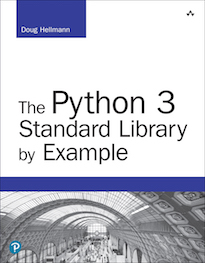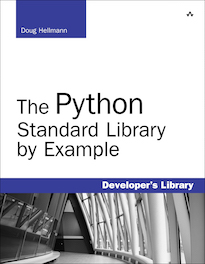OrderedDict¶
An OrderedDict is a dictionary subclass that remembers the order in which its contents are added.
import collections
print 'Regular dictionary:'
d = {}
d['a'] = 'A'
d['b'] = 'B'
d['c'] = 'C'
d['d'] = 'D'
d['e'] = 'E'
for k, v in d.items():
print k, v
print '\nOrderedDict:'
d = collections.OrderedDict()
d['a'] = 'A'
d['b'] = 'B'
d['c'] = 'C'
d['d'] = 'D'
d['e'] = 'E'
for k, v in d.items():
print k, v
A regular dict does not track the insertion order, and iterating over it produces the values in an arbitrary order. In an OrderedDict, by contrast, the order the items are inserted is remembered and used when creating an iterator.
$ python collections_ordereddict_iter.py
Regular dictionary:
a A
c C
b B
e E
d D
OrderedDict:
a A
b B
c C
d D
e E
Equality¶
A regular dict looks at its contents when testing for equality. An OrderedDict also considers the order the items were added.
import collections
print 'dict :',
d1 = {}
d1['a'] = 'A'
d1['b'] = 'B'
d1['c'] = 'C'
d1['d'] = 'D'
d1['e'] = 'E'
d2 = {}
d2['e'] = 'E'
d2['d'] = 'D'
d2['c'] = 'C'
d2['b'] = 'B'
d2['a'] = 'A'
print d1 == d2
print 'OrderedDict:',
d1 = collections.OrderedDict()
d1['a'] = 'A'
d1['b'] = 'B'
d1['c'] = 'C'
d1['d'] = 'D'
d1['e'] = 'E'
d2 = collections.OrderedDict()
d2['e'] = 'E'
d2['d'] = 'D'
d2['c'] = 'C'
d2['b'] = 'B'
d2['a'] = 'A'
print d1 == d2
In this case, since the two ordered dictionaries are created from values in a different order, they are considered to be different.
$ python collections_ordereddict_equality.py
dict : True
OrderedDict: False

